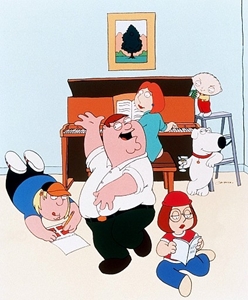How effective are TV show gimmicks, really? (spoilers)
Published November 27, 2013 at 12:07 pm

Most avid couch potatoes are pretty well-versed in the desperate things that scripted TV shows will do to try and get more people watching: a wedding, a major disaster, a shocking reveal, a celebrity guest star. And among all of these, nothing seems to stir the pot so much as the death of a major character on the show.
As sophisticated as modern TV watchers may think they are, this sort of thing still gets people going on Twitter and creates waves of conversation and uproar. In recent years, many major shows have grabbed headlines from the surprise demises of characters, from “Downton Abbey” to “Breaking Bad.” Even the Simpsons recently announced it would do this in the current season. It’s something every show seems to be forced to contend with after a while.
But does losing a key part of what makes a show tick help strengthen the brand or leave it weaker? It’s a question worth considering in the wake of a recent move by the cartoon sitcom “Family Guy” to kill off one of the members of the main cast, as the International Business Times reported.
Now, “Family Guy” is a cartoon, and one with a particularly loose approach to continuity. Yet, if this is a change the show’s creators stick to, it could have a lasting effect on the way it and all its related properties are perceived.
Especially since the show not only killed the mainstay character of Brian but replaced him with a new one, there’s the possibility that this might be the kind of adjustment to the status quo that longtime critics of the show might appreciate.
In the end, it probably depends on whatever the property in question is. Some will be able to survive, and some will perhaps not. With the right kind of guidance, the people behind your brand can help make the right decisions for long-term sustainability.







comment closed